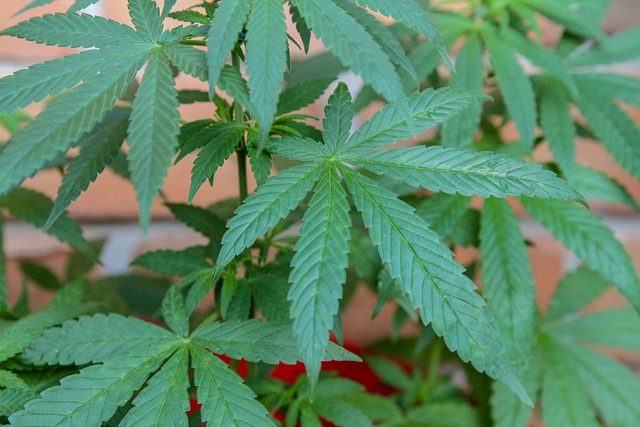The THCA flower, a natural source of anti-inflammatory compounds found within hemp and cannabis plants, has emerged as a therapeutic agent due to its non-psychoactive properties. Studies indicate that THCA interacts with the endocannabinoid system to modulate immune responses and diminish pro-inflammatory cytokines, offering potential benefits for conditions like arthritis through a natural pathway. The combination of cannabinoids and terpenes in THCA flower is believed to amplify its anti-inflammatory effects more effectively than isolated compounds. Research into THCA's extracts, particularly from the flower tips, shows significant anti-inflammatory potential by engaging with CB1 and CB2 receptors and suppressing inflammatory cytokines and enzymes like COX-2 and lipooxygenase. The optimal cultivation of THCA flower requires careful environmental management, including strain selection, sunlight exposure, temperature control, soil pH maintenance, humidity management during flowering, pest and disease monitoring, and precise timing for harvest to ensure maximum anti-inflammatory potency. Post-harvest, drying and curing under controlled conditions are critical to preserve the integrity of THCA's anti-inflammatory compounds. Advanced extraction techniques can concentrate these compounds, offering a supplement with notable anti-inflammatory properties. THCA flower is a safe and natural option for those seeking inflammation relief without psychoactive effects, and it can be incorporated into daily life in various ways, including smoking, vaporizing, edibles, capsules, and tinctures. It is important to consult healthcare professionals before using THCA flower as part of a health regimen, particularly for individuals with pre-existing conditions or those on other medications.
Explore the natural benefits of THCA flower, a botanical source rich in anti-inflammatory compounds. This article delves into the science behind these properties and offers cultivation tips to maximize their effectiveness. From harvesting and processing to integrating them into your wellness routine, learn how THCA flower can be a valuable addition to your health regimen for managing inflammation. Discover the key to harnessing its potential for optimal anti-inflammatory benefits.
- Unveiling THCA Flower: A Natural Source of Anti-Inflammatory Compounds
- The Science Behind THCA's Anti-Inflammatory Properties
- Cultivating THCA Flower: Tips for Optimal Anti-Inflammatory Potential
- Harvesting and Processing: Preserving THCA's Anti-Inflammatory Benefits
- Integrating THCA Flower into Your Wellness Routine
- Understanding Dosage and Effects of THCA Flower for Inflammation Relief
Unveiling THCA Flower: A Natural Source of Anti-Inflammatory Compounds
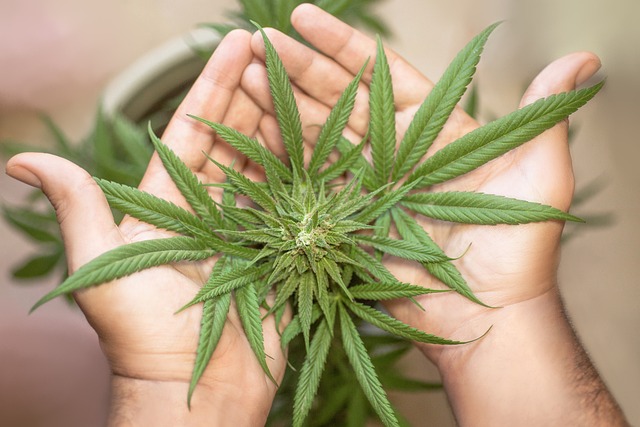
Unveiling THCA Flower as a Natural Source of Anti-Inflammatory Compounds
The THCA flower, rich in tetrahydrocannabinolic acid (THCA), has garnered attention for its potential anti-inflammatory properties. THCA, the raw and non-psychoactive precursor to the well-known compound THC found in cannabis, has been the subject of numerous studies exploring its therapeutic effects. These investigations have shed light on how THCA interacts with the body’s endocannabinoid system, offering a natural approach to inflammation management. The anti-inflammatory compounds present in THCA flower are believed to work by modulating immune responses and reducing pro-inflammatory cytokines, which are key drivers of inflammation within the body. This makes THCA flower an appealing option for those seeking natural remedies for conditions such as arthritis or other inflammatory diseases.
Furthermore, the anti-inflammatory potential of THCA is not its sole benefit. The cannabinoid and terpene profile of THCA flower contributes to a unique entourage effect that may enhance its therapeutic properties. This synergy can lead to more effective inflammation reduction compared to isolated compounds. As research continues, the role of THCA flower in holistic health practices becomes increasingly clear, offering a natural and promising alternative for those looking to mitigate inflammation in a safe and regulated manner.
The Science Behind THCA's Anti-Inflammatory Properties
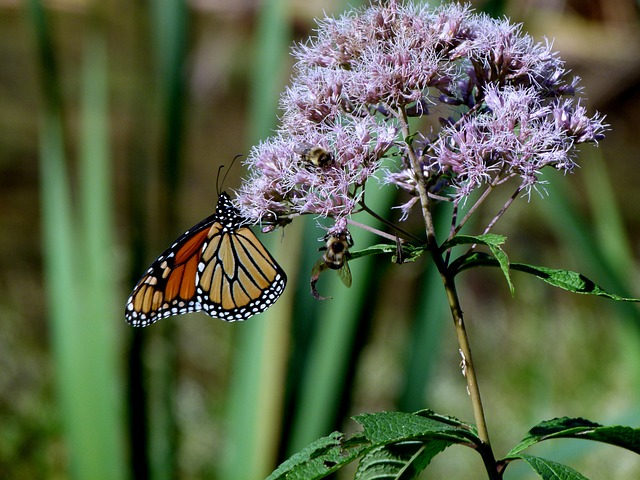
Delta-9-tetrahydrocannabinolic acid (THCA), which is the raw, non-psychoactive form of THC found in cannabis flowers, has garnered attention for its potential health benefits. Among these, THCA’s anti-inflammatory properties have been a subject of scientific investigation. Recent studies have highlighted that THCA interacts with the body’s endocannabinoid system through two primary cannabinoid receptors: CB1 and CB2. This interaction is pivotal in modulating the immune response, thereby exhibiting anti-inflammatory effects. The mechanism behind this action involves the suppression of pro-inflammatory cytokines and enzymes that contribute to inflammation within the body. Research has shown that THCA can inhibit the activity of certain enzymes responsible for causing inflammation, such as COX-2 and lipooxygenase, without inducing psychoactive effects. This selective action makes THCA an attractive candidate for therapeutic use in the management of various inflammatory conditions, including arthritis and skin inflammations. The anti-inflammatory compounds present in THCA flower tip extracts offer a promising avenue for natural anti-inflammatory interventions without the psychoactive consequences typically associated with cannabinoids.
Cultivating THCA Flower: Tips for Optimal Anti-Inflammatory Potential
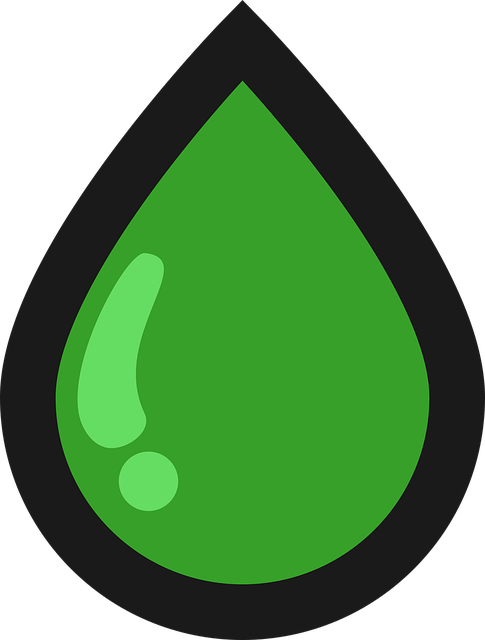
When cultivating THCA flower with optimal anti-inflammatory potential, it is imperative to focus on environmental factors that can influence the plant’s ability to produce the desired compounds. Firstly, selecting a strain known for its high THCA content is crucial. These strains typically have a higher concentration of the raw acid form of THC, which is believed to possess strong anti-inflammatory properties. Ensuring that your growing space provides ample sunlight and regulated temperatures can significantly impact the development of these compounds. Additionally, maintaining optimal soil pH, typically between 6.0 and 7.5, will facilitate nutrient uptake and support healthy plant growth.
During the flowering stage, managing humidity levels is key to prevent mold and pathogen growth, which can compromise the quality of the anti-inflammatory compounds. Regularly monitoring for pests and diseases and employing organic pest control measures when necessary will help protect your THCA flower. Harvesting at the right time is also vital; the trichomes that contain the THCA should be cloudy and intact, indicating peak potency for anti-inflammatory effects. After harvest, proper drying and curing in a cool, dark, and ventilated area will preserve the integrity of the THCA compounds, ensuring that your THCA flower retains its maximum anti-inflammatory potential.
Harvesting and Processing: Preserving THCA's Anti-Inflammatory Benefits

Harvesting THCA-rich flowers at the optimal time is crucial for preserving their anti-inflammatory benefits. The trichome heads, which contain the therapeutic cannabinoid tetrahydrocannabinolic acid (THCA), must be handled with care to prevent degradation. Farmers and cultivators should monitor the maturity of the flowers closely, aiming for a harvest time when the compounds responsible for anti-inflammatory effects are at their peak concentration. Post-harvest handling also plays a significant role; immediate drying and curing under controlled conditions can help maintain THCA’s integrity, ensuring that its potential anti-inflammatory properties remain intact.
Processing THCA flowers after harvest involves careful attention to detail to preserve the cannabinoid’s therapeutic value. The flowers should be dried in a manner that preserves the volatile compounds, typically at low temperatures and with good air circulation to prevent mold growth. Curing, which follows drying, allows for further moisture removal and can enhance the flavors and aromas of the THCA while maintaining its anti-inflammatory compounds. Extracting THCA through methods such as ethanol or CO2 extraction can yield a concentrated form that retains its beneficial properties, providing users with a potent anti-inflammatory supplement once properly processed and utilized.
Integrating THCA Flower into Your Wellness Routine

Between the burgeoning field of cannabinoid research and personal wellness routines, THCA flower has garnered attention for its potential health benefits. Tetrahydrocannabinolic acid (THCA), the raw form of THC found in hemp and cannabis plants, is renowned for its anti-inflammatory properties. Integrating THCA flower into your wellness routine can be a natural approach to support your body’s response to inflammation. Unlike its psychoactive counterpart, delta-9-THC, THCA does not produce a high, making it a suitable option for those seeking the therapeutic effects without mind-altering side effects.
To incorporate THCA flower into your daily regimen, consider its versatile use—it can be consumed in various forms, including smoking, vaporizing, or infusing into edibles. For those prioritizing lung health, alternative consumption methods such as capsules or tinctures may be preferable. The anti-inflammatory compounds in THCA flower interact with the body’s endocannabinoid system, which plays a crucial role in regulating pain, sleep, and immune system response. Regular use of THCA flower may contribute to maintaining overall wellness and promoting homeostasis within the body. Always source high-quality, lab-tested THCA flower to ensure safety and efficacy, and consult with a healthcare professional before making any changes to your wellness routine, especially if you have underlying health conditions or are taking other medications.
Understanding Dosage and Effects of THCA Flower for Inflammation Relief
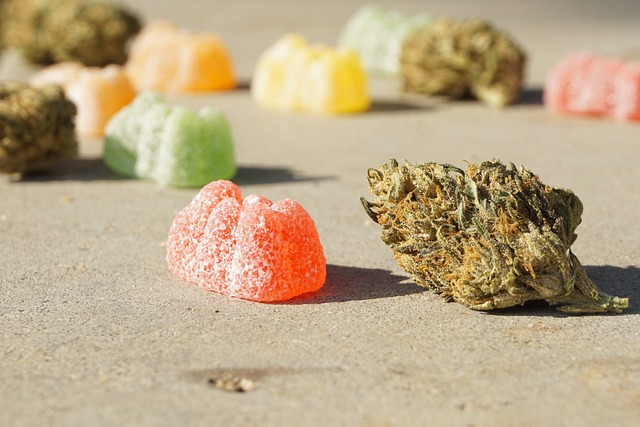
THCA, or tetrahydrocannabinolic acid, is a non-psychoactive compound found in hemp and cannabis plants that has garnered attention for its potential anti-inflammatory properties. As research continues to evolve, users are exploring the benefits of THCA flower as a natural remedy for inflammation relief. Unlike its psychoactive counterpart THC, THCA does not induce a high but interacts with the body’s endocannabinoid system, which regulates various physiological processes, including pain and immune responses. This interaction may contribute to its anti-inflammatory effects, making it a subject of interest for those seeking natural alternatives to over-the-counter or prescription medications.
Dosage of THCA flower is a critical factor in determining its efficacy for inflammation relief. It’s important to start with a low dosage to gauge individual sensitivity and effects. Factors such as body weight, tolerance, and the specific condition being addressed can influence the optimal dosage. Users often consume THCA flower through smoking or vaporizing, but it’s also available in edible forms. It’s advisable to consult with a healthcare professional before incorporating THCA flower into one’s wellness routine, especially for those with underlying health conditions or who are taking other medications. By adhering to recommended dosages and consulting with experts, individuals can maximize the potential anti-inflammatory benefits of THCA flower while minimizing any risks associated with its use.
THCA flower emerges as a natural and potent source of anti-inflammatory compounds, offering a promising addition to wellness routines. The meticulous cultivation and precise processing methods are pivotal in maintaining the efficacy of these beneficial properties. By incorporating THCA flower into your regimen and understanding the optimal dosage for individual needs, one can harness its anti-inflammatory potential effectively. This article has delved into the multifaceted benefits and practical applications of THCA flower, setting a foundation for further exploration in natural wellness solutions.
